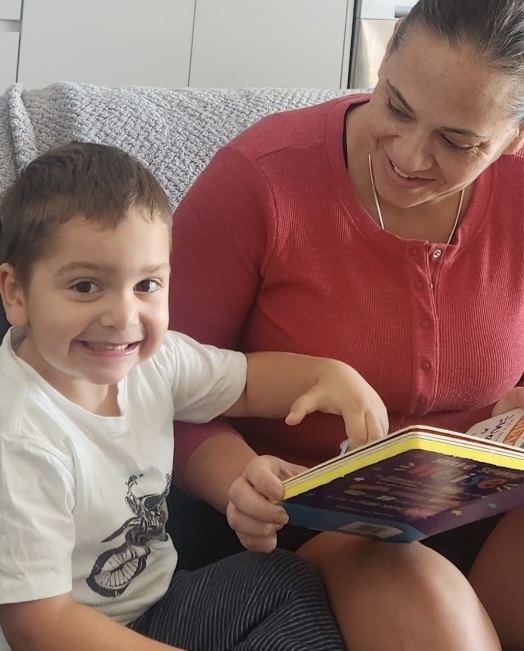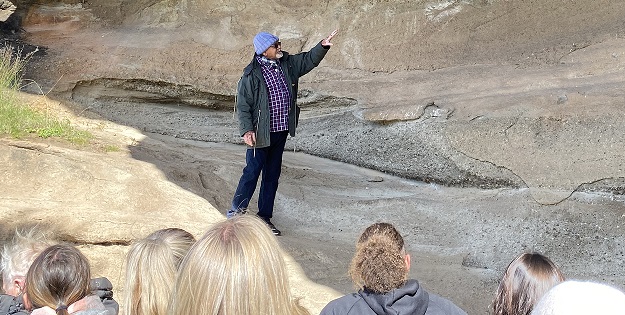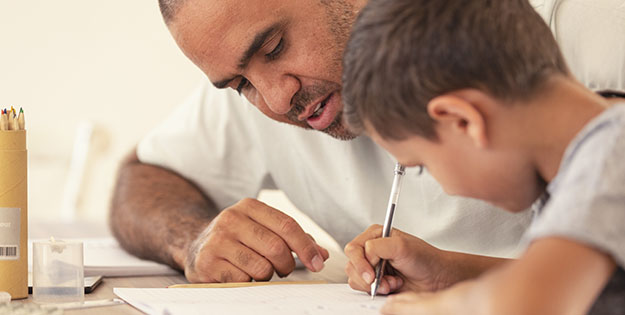Community
Copyright@ Australian Catholic University 1998-2026 | ABN 15 050 192 660 CRICOS registered provider: 00004G | PRV12008
Copyright@ Australian Catholic University 1998-2026 | ABN 15 050 192 660 CRICOS registered provider: 00004G | PRV12008

In the lead up to the failed Voice referendum, Indigenous disadvantage was put front and centre in the national conversation, with an intense focus on the gaps in life expectancy, health, employment, and educational opportunities.
While it is undeniably important to consider these persistent inequalities, it is also crucial that we reflect on the many stories of success in Aboriginal and Torres Strait Islander communities.
That is the view of Professor Rhonda Craven, the founding director of ACU’s Institute for Positive Psychology and Education (IPPE), and an expert on Indigenous education and success. In contemporary Australia, examples of Indigenous thriving are abundant.
“We’ve got Aboriginal entrepreneurs who are incredibly successful and they’re operating businesses, they’re developing new ways of doing things,” says Professor Craven, who has close familial ties to the Wonnarua nation. “We’ve got doctors, nurses, lawyers, writers, teachers, tradespeople … there’s no shortage of successful stories.”
The problem, says Professor Craven, is that we lack a clear understanding of how to replicate and augment that success.
“We don’t have enough of the research that shows us how to identify the drivers of Indigenous success,” she says. “How does it come about? How do we upscale it more widely to other Indigenous people and other groups? These are questions we need focus on.”
In recent years, Professor Craven and her IPPE colleagues have been on a quest to find answers to these questions.
By combining Indigenous knowledges and worldviews with Western research methods, the researchers developed a new model called ‘Towards a Positive Psychology of Indigenous Thriving’.
The strengths-based model takes a fresh approach, moving beyond the view of Indigenous people through the lens of deficit and disadvantage.
The researchers note that the intense focus on the problems facing First Nations people, rather than the positive potential that exists, “fails to take into account the strengths of Indigenous children, youth, and communities”.
“There are many clear benefits to a positively-oriented approach that focuses on successes rather than failures, an approach that is inclusive of Indigenous ways of knowing, being, and doing,” Professor Craven says.
“Positive psychology is about people getting the most out of life, and right now, there are many Indigenous Australians getting the most out of life by being successful. We desperately need to seed that success.”

She acknowledges, however, that the notion of success can take on different meanings for different people.
“Success can be defined in different ways, so we’re not only talking about the types of jobs and pathways that non-Indigenous Australians typically value and like – it can also refer to having a strong connection to identity, culture and language, and enriching lives to help Indigenous children and communities,” she says.
“It’s really about focusing on the things that provide a space for Indigenous children and youth to not just succeed, but to thrive.”
At the heart of the model that IPPE researchers have developed is the ‘EMU’ framework, which consists of three unique elements: ‘E’ stands for ‘exemplars’, referring to the effort to identify what drives the Indigenous success stories we’ve already mentioned; ‘M’ is about ‘measuring’ and assessing the drivers using the strongest available research methods; and ‘U’ refers to ‘utilising’ the findings of research in real-world settings, developing partnerships with Indigenous communities to share successful approaches with others.
“We called it ‘EMU’ because it was created here in Australia, which I think is just a lovely touch,” says Professor Craven, adding that the framework guides the conduct of research programs that aim to enable Indigenous children, youth, and communities to flourish.
“It’s designed to be a model based on the best research, focusing on the strengths that are already valued by Indigenous people, while also leaving space for it to be adapted by different communities to suit their unique needs.”
Not long after the model was published in Contemporary Educational Psychology, IPPE was approached by the Wonnarua Nation Aboriginal Corporation, the traditional custodians of the Hunter region of NSW. The result was the Indigenous Game Changers program, a reciprocal research partnership with an overarching mission to “transform and enrich Indigenous lives”.
With a focus on the pillars of education, family and community, physical health, and psychological thriving, the partnership has led to the creation of a series of programs that are being piloted in the Wonnarua community, with concurrent research evaluating their impact.
“We’re trying to make our model work on Wonnarua Country, and if it does work, we are hoping that other mobs can take what we’ve learnt from research excellence and adapt it for their own communities in their own way,” says Professor Craven, who recently delivered a presentation on the Game Changers program alongside the Wonnarua Nation Aboriginal Corporation’s chief executive, Mr Laurie Perry.
“We’re trying to use the best available research methodologies to show that these programs are effective, because at present there are too many people with wide assumptions about what works. It needs to be evidence-based and data-driven, and that’s why it’s so important that we invest the time to engage in the research that tells us exactly what works.”
Among the projects that have been pioneered through the research partnership is ‘Deadly Home Reading’, a parent-and-child program that helps families to teach their young children how to read.
While research that specifically explores the effect of reading in Indigenous families is relatively scant, the broader literature has found a positive association between home reading and a child’s literacy skills and cognitive development.
“It’s a great opportunity for parents to learn about the world’s best available research and apply it to their children through reading activities that are fun and engaging,” says Professor Craven, who also notes the positive impact that shared reading can have on parent-child relationships.

Children involved in the program also complete reading activities and a survey with IPPE’s Indigenous Research Champions three times a year, tracking progress and enjoyment. Parents receive training and support as well as cultural books that have been written and illustrated by community members. These include Burning Mountain, Jimmy and the Water Cart, Deadly Firestick Farming, and Creation of the Hunter Valley.
While storytelling has historically been the main way of sharing Aboriginal knowledge, culture, language and spirituality, it is an oral – rather than a written – tradition.
“That’s the benefit of using books that include elements of Indigenous culture and have been written from an oral storytelling perspective,” says Professor Craven, whose family members have contributed to the creation of some of the books, which are freely available online.
“Aboriginal children can relate to these stories, and particularly Wonnarua children, and that’s really crucial because we have a history in Australia where Indigenous children have turned up to school and been expected to leave their culture at the gate.
“Their culture hasn’t been acknowledged, respected or embraced by schools, and there hasn’t been access to material that celebrates the achievements and the richness and vibrancy of Indigenous communities. These books do that. And the fantastic and cool thing about them is that anybody can use them to learn about Aboriginal culture because they’re easily accessible.”
Other current Game Changers programs include ‘Deadly Futures’, a free online tutoring scheme for Aboriginal children in years 3 and 4, and ‘Deadly Start, a literacy and numeracy program for pre-schoolers funded by the Australian Research Council and the NSW Department of Education. Planned projects include ‘Deadly Parenting’, ‘Deadly Screen Time’, ‘Deadly Culture’, and ‘Deadly Universities’.
Wonnarua elder Laurie Perry says the partnership with ACU gives the Wonnarua “an amazing opportunity by enabling our children’s success in education”.
“The Indigenous Game Changers community-led program will show how working together we can make a real difference,” he says.
Professor Craven is also hopeful that the program will bear fruit, helping to seed the success that has already been achieved in Aboriginal and Torres Strait Islander communities.
In the wake of the referendum result, she says it is more important than ever that we focus on the things that work.
“We need to invest in our kids, and that means following the evidence that shows what works to enrich Indigenous lives and communities,” she says.
“I believe that education is the absolute key. We can get this right and we can do it well, but we need support to enable the research process, to get the practical results on the ground that changes the game for our children, our youth, and our communities.”
Learn more about the Indigenous Game Changers program and the Wonnarua Nation Aboriginal Community.
Want to use education to flourish and thrive? Explore the options.
Copyright@ Australian Catholic University 1998-2026 | ABN 15 050 192 660 CRICOS registered provider: 00004G | PRV12008